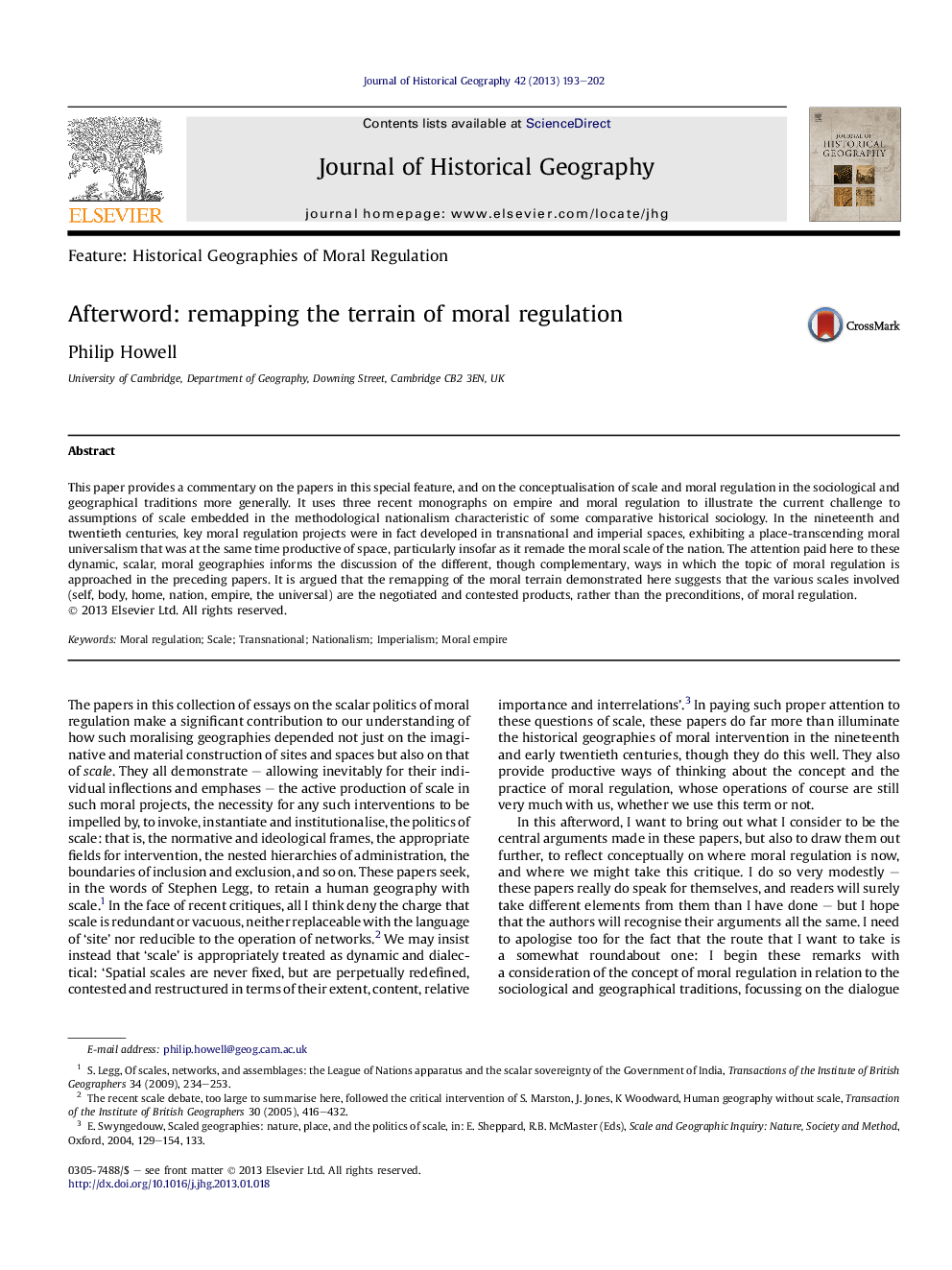| Article ID | Journal | Published Year | Pages | File Type |
|---|---|---|---|---|
| 7448441 | Journal of Historical Geography | 2013 | 10 Pages |
Abstract
This paper provides a commentary on the papers in this special feature, and on the conceptualisation of scale and moral regulation in the sociological and geographical traditions more generally. It uses three recent monographs on empire and moral regulation to illustrate the current challenge to assumptions of scale embedded in the methodological nationalism characteristic of some comparative historical sociology. In the nineteenth and twentieth centuries, key moral regulation projects were in fact developed in transnational and imperial spaces, exhibiting a place-transcending moral universalism that was at the same time productive of space, particularly insofar as it remade the moral scale of the nation. The attention paid here to these dynamic, scalar, moral geographies informs the discussion of the different, though complementary, ways in which the topic of moral regulation is approached in the preceding papers. It is argued that the remapping of the moral terrain demonstrated here suggests that the various scales involved (self, body, home, nation, empire, the universal) are the negotiated and contested products, rather than the preconditions, of moral regulation.
Related Topics
Social Sciences and Humanities
Arts and Humanities
History
Authors
Philip Howell,
